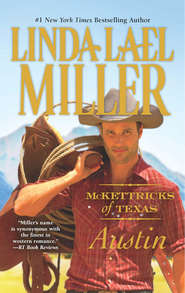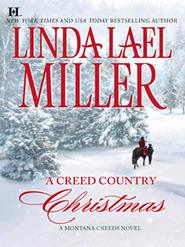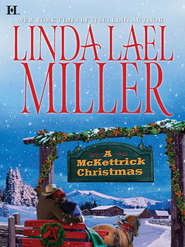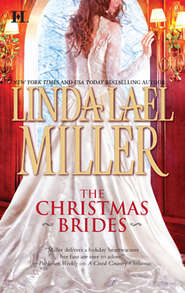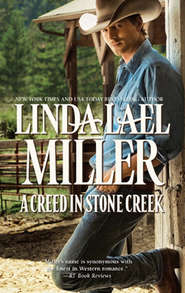По всем вопросам обращайтесь на: info@litportal.ru
(©) 2003-2024.
✖
The Bridegroom
Автор
Год написания книги
2019
Настройки чтения
Размер шрифта
Высота строк
Поля
Now, he clutched a bouquet of wilting flowers, probably purloined from some neighbor’s water-starved garden, in his left hand. “Good afternoon, Lydia,” he said.
“Mr. Fitch,” Lydia acknowledged, with a coolness she couldn’t quite hide.
His small, too-watchful eyes swept over her. “You’re not dressed for the road,” he pointed out, his tone mildly critical. “Any wife of mine will always be prepared to go driving.”
Any wife of mine…
Lydia managed not to shudder, though the smile she’d put on—if it was a smile and not the death grimace it felt like—wobbled on her mouth. “It’s such a hot day,” she said. “I was hoping we could stay inside.” And I’m not your wife, Jacob Fitch. Not yet, anyway. Not until tomorrow.
Mr. Fitch trundled past her, into the house, nearly stomping on her toes. “Honestly, Lydia, this delicacy of yours is bothersome. Any wife—”
Lydia closed the door smartly behind him, cutting off the rest of his sentence. She was not delicate, had not been seriously ill since she was a child, though admittedly her appearance made her seem fragile. Like her great-aunts, she was small-boned, though at five feet two inches, she was taller than Mittie and Millie, and she did have a nice bosom.
Protesting that she was as healthy as anyone, however much she wanted to do just that, would serve no purpose. Jacob Fitch did not listen to anything she said, unless, of course, it was precisely what he wanted to hear.
He fairly shoved the flowers at her.
Lydia took them, and her heart turned over at their thirsty state. “I’ll just put these in water,” she said brightly. “Do sit down in the parlor, Mr. Fitch, and make yourself at home. I’ll only be a minute.”
Fitch tilted his head back, admired the high, frescoed ceilings, fading now, but still finely crafted. The huge crystal chandelier glittered, though unlit—at night, powered by gas, it glowed, and even after all these years, it seemed magical to Lydia.
A faint smile touched Mr. Fitch’s narrow lips. “The old place could use a man’s touch,” he said huskily, letting his gaze drift slowly to Lydia, then over her, like a spill of something viscous. No doubt he was anticipating their wedding night. “And so could you.”
Again, Lydia managed not to shudder, but just barely.
The thought of Jacob Fitch putting his hands to that lovely old house, much less to her naked body, made the pit of her stomach drop, as if from a great height.
Overcome with a flash of pure dread, she turned on one heel, biting her lower lip, and fled to the kitchen. Oh, to go right on through, out the back door, down the alley to—
To where?
She had no place to go.
No one to turn to.
Months ago, in a fit of panic, she’d sent off the letter, the one Gideon Yarbro had written to himself in case she ever needed to send it—Please come and get me right away, was all it said—when she was a little girl, recovering from pneumonia and the loss of her father. But there had been no reply, of course.
There wouldn’t have been, though, would there? Gideon, a mere boy at the time, anxious to reassure her, had scratched out that single line in penciled letters, sealed the envelope, addressed it to: Gideon Rhodes, Deputy Marshal, General Delivery, Stone Creek, Arizona Territory. Heaven knew where he was now, after a decade—he’d been bound for college that year, so it was unlikely that he was still the deputy marshal up at Stone Creek. And Arizona wasn’t even a territory anymore, it was the forty-eighth state.
These and other equally hopeless thoughts tumbled in Lydia’s mind as she ignored Helga’s penetrating gaze and filled a vase with cool water for the fading flowers. Now, she simply felt foolish for adding postage to that very old letter and dropping it through the slot down at the post office. She blushed to imagine it actually reaching Gideon—especially at this late date—and silently prayed that it had gone astray.
And yet it was her one hope, that letter.
“Why don’t you just tell Jacob Fitch to get back into that smoke-belching horseless carriage of his,” Helga, never one to withhold advice, asked intractably, “and drive himself straight off the nearest mesa?”
Helga’s disapproval of Mr. Fitch was of long standing, and so was her opinion of the automobile. One of the first such machines to appear in Phoenix, a point of pride with Jacob, the vehicle, with its constant sputtering and backfiring, frightened old Mrs. Riley’s chickens so badly they wouldn’t lay. Helga had laid the fault for more than one skimpy breakfast at Mr. Fitch’s door.
“You know I can’t,” Lydia said softly, taking longer than necessary to attend to the flowers.
Helga had been running the household for years—only Mr. Evans, the late butler and sometime carriage driver, had worked for the family longer—and she felt free to express herself on any and all matters concerning the Fairmonts. “Miss Nell,” the sturdy middle-aged woman said implacably, “must be rolling over in her grave. You, the last hope of the family, marrying that old—”
Tears stung Lydia’s eyes, and she sniffled once, raised her chin, the way she always did when a weeping spell threatened. Nell Baker, her father’s only sister, had come to fetch her up at Stone Creek after Papa’s death in a blizzard, thereby saving her from two equally frightening alternatives: being sent to an orphanage, or left in the care of her selfish, slatternly stepmother, Mabel. Nell had raised Lydia, with help from Helga, Evans and the great-aunts, hired private tutors because the local schools did not meet her standards, clothed and fed Lydia, allowed her to keep stray cats, bought her watercolor paints and fine brushes at the first indication of talent.
Most of all, Nell, a childless widow herself, had loved her.
Aunt Nell had passed on suddenly, the previous year, and Lydia still felt the loss like a nerve laid bare to a winter chill.
“I’ll tell him for you,” Helga said, in an almost desperate whisper, when Lydia didn’t reply to her suggestion. “I’ll send him packing, once and for all, and good riddance!”
Lydia, having forced herself to start toward the parlor, where Mr. Fitch was waiting, closed her eyes. They’d had this discussion before—Helga knew full well that most of the Fairmont money was gone. The house would soon follow, since it was heavily mortgaged. And while both Lydia and Helga would be fine if that occurred—eventually, anyway—what would happen to the great-aunts?
Phoenix had been a mere crossroads when Mittie and Millie had come to the Arizona Territory with their widowed father, Judge William Fairmont, after Union troops had burned their Virginia plantation, fields, house and outbuildings, during the war. This house, originally only three rooms, but enlarged as the Judge prospered and then grew even richer than he’d been in Virginia, was their haven, a sanctuary in a world that had already proved itself violent and harsh. Every corner, every nook, held some precious memory.
Except for church services on Sundays, the aunts never ventured farther than the garden out back.
“You must stay out of this, Helga,” Lydia said, after swallowing and without turning around.
“You could marry any man in this town!” Helga argued.
There was some truth in that assertion, Lydia supposed, but none of the men who’d offered for her had Jacob Fitch’s money, or his power. None of them could save the big stone house and its cherished furnishings, each one with a story attached. And none of them would be willing to provide houseroom to two very old ladies who still suffered from fiery nightmares and woke up screaming that the Yankees had come.
Mr. Fitch, the only son of an elderly mother, had already promised that Lydia, the aunts and Helga could all stay right here under this roof. On their wedding day—dear God, tomorrow—he would pay off any outstanding debts and declare the mortgage, held by his bank, paid in full—he had given Lydia his word on that. Even had documents prepared, so stating.
All Lydia had to do was marry him.
When she could sign “Lydia Fairmont Fitch” on the appropriate lines of the papers Jacob’s lawyers had drawn up, the aunts and their memories would be safe.
Again, Lydia thought of the letter she’d mailed off to Gideon in a fit of panic, and something rose into her throat and fluttered there, like a trapped bird.
Even supposing Gideon would be willing to help her, what could he possibly do?
Nothing, that was what.
She had to stop this incessant spinning back and forth between hope and despair.
Gideon wasn’t coming to her rescue, like some prince in a storybook.
No one was.
Tomorrow afternoon at two o’clock, wearing Aunt Nell’s altered wedding gown, she would stand up beside Jacob Fitch in front of the cold fireplace in the formal parlor in that burden of a house and vow to love, honor and obey the husband she didn’t want.
“Lydia?” Helga whispered miserably. “Please. You mustn’t be hasty—”
“The decision,” Lydia said, for Helga’s benefit and for her own, “has been made, Helga, and there will be no further discussion.”
With that, Lydia left the kitchen, the vase containing Jacob’s flowers shaking in her hands, fit to slip and shatter into a million fragments.
BECAUSE GIDEON PASSED THROUGH Phoenix at least once a year, he kept a postal box there, as he did in several cities around the country. That afternoon, shaven and barbered and bathed, he stuck the appropriate key in the lock and opened the heavy brass door, stooped a little to peer inside. Straightened as he removed the usual printed sales fliers and outdated periodicals.






